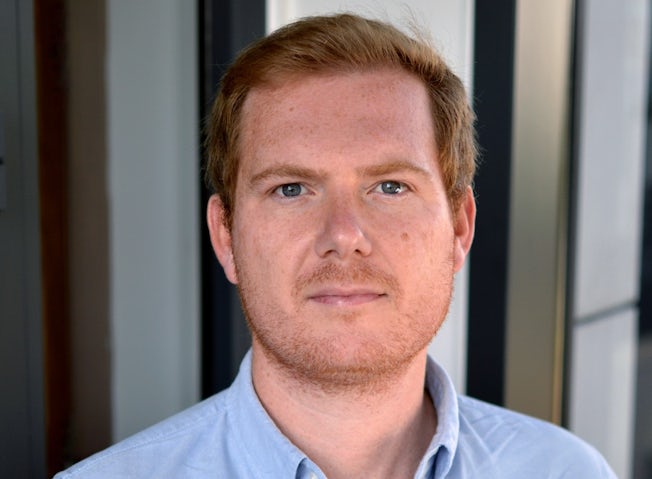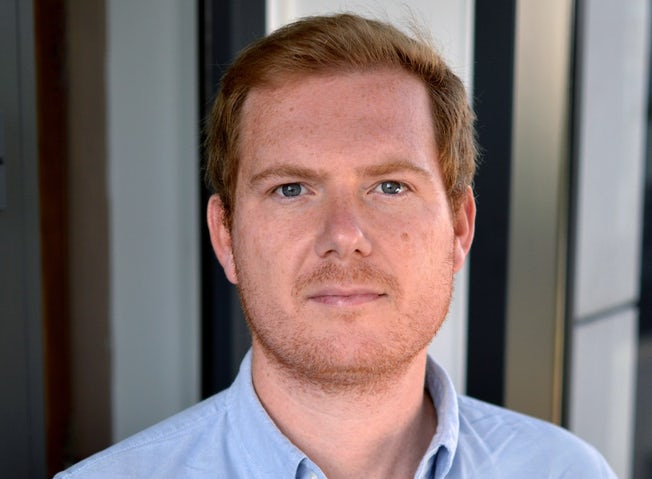Today’s ‘Day in the Life’ features Leigh Gammons, EMEA CEO of Wunderman Thompson Technology.
After taking over as CEO at the start of 2020, Leigh explains how he has been able to navigate his new role (alongside the arrival of a new baby), all whilst working from his dining table… We also touch on changing customer expectations, and how brands can best meet them.

How much of a challenge has it been to take on the new role of CEO remotely?
It’s been a completely new chapter for both myself and the company. It’s the first time we’ve had a CEO other than our Founder and also my first CEO role. What a time to do it!
Going through a rebrand (becoming Wunderman Thompson Technology) during the pandemic had its peaks and troughs, but everyone did a great job at making sure that we didn’t lose our culture or identity along the way.
I think the main challenge for me has been engaging with my teams. I’ve really tried to make sure that I listen to everyone and be beside them in the trenches when things get difficult. You want to talk to people and actually spend time with them, but obviously this hasn’t been possible, which isn’t ideal. I’ve tried to really focus on balancing a full day of Teams meetings with developing those personal relationships and engaging with teams and individuals as much as possible.
Also, as CEO, you’re the person sharing the most information with the company a lot of the time. You used to be able to have 1-1 conversations with senior members of the business who would then pass the information on but, at the moment, this isn’t as easy. I’ve realised that you need to be more meticulous about how you provide and share information.
Talk us through a typical day…
I guess having a baby in lockdown has changed my outlook of a typical day. He’s now 9 months old, so things are getting a little easier and I’ve definitely got into more of a routine with work.
I try and sit down at my desk for an hour or so to check my emails and respond to any immediate issues when I first wake up. Then stepping away and getting some fresh air early in the day really helps to clear my head. Taking the baby and our dog Baloo out for a walk first thing has become a bit of a morning ritual. It also gives me an opportunity to catch up with my team away from the computer screen.
Then it’s just a case of getting on with my day. The marathon of Teams and Zoom calls can make it quite difficult to get things done and constantly switching between client conversations, internal calls and company-wide updates isn’t easy.
I make sure I finish every day spending some time with the little lad. I try and take him out in the evenings to give my wife a bit of break and then it’s bath time for him. Stepping away from the computer in the evenings and spending some time with my family is key.
How do you maintain an effective work/life balance?
The main thing for me is trying to make sure that you plan time outside of work and stick by it as much as possible. I know this isn’t as easy as it sounds, but I’ve made a conscious effort to set aside time with my family. Your laptop is always nearby these days, but you need to make sure you’re doing other things to keep you mind and body healthy. I have always tried to run 1,000km a year and I’ve kept to that ritual. It gets me outside; I’ll listen to a podcast and try to take my mind off work for a while.
I really urge people to actually take some time out. Even if you’ve not got a holiday planned, making sure you have a block of time away from the home office is crucial. Turn everything off, go onto autopilot for a bit and take some annual leave where you aren’t thinking about work at all. I managed to take a few days last month, and not looking at my computer screen all day made a huge difference.
How has strategy changed at your company in the past 18 months?
We’ve been extremely lucky. Having clients in sectors that were not too heavily impacted last year was very fortunate and the transition to remote working wasn’t too difficult for us as a technology company.
Although we’re not out of the woods yet, things are looking promising and we’re able to start imagining a future where more of us will be in our offices in some form or other. Of course it’s going to be very different to what we were used to but, as CEO, I want to make sure that our focus is on the people we work with (employees, clients and partners), ensuring they are in the best position to move forward.
I think that some of the impact of what we’ve all been through – in terms of well-being, new habits and the way we want to live our lives as a result of this experience – will only be felt as time goes on, but we will not be forcing anyone back to the office. Organisations that are able to successfully create hybrid environments will have the best transition out of lockdown.
How has customer behaviour (or your clients’ customer behaviour) changed during the pandemic?
Expectations are higher than they’ve ever been since Covid. After a year online, consumers now accept that this is the default way to do business. Most of our existing clients are pretty far along the digital maturity curve already, so we’re really trying to focus on ways in which we can help them to deliver even better customer experiences using technology.
Covid has transformed the way that we all live, work and consume things and we need to embrace these changes to make the future a better place for all. Increased expectations are going to be table stakes when it comes to engaging with customers going forward. Brands have a lot of power to step up and we have the knowledge and experience to help them.
What do you predict for the future?
My hope is that we all look back on 2020 as the year things changed for the better in modern times, especially for the marketing industry. How people engage with ideas, initiatives, and opportunities around many of the world’s problems is often created or facilitated by brands and businesses like ours are on people’s minds more than ever.
We have such a great opportunity to create change for good and our industry has its part to play in getting people on board with the right information at the right time. I often say that trust is becoming the new currency with customers and I really believe that the most successful companies will be the ones that maintain trust with their consumers consistently over the coming years.
What advice would you give somebody working in your industry right now?
The first thing I’d tell someone is that you’ve got to be very open minded. If we look at where our industry is today compared to 10, five, or even two years ago, it’s unrecognisable. Don’t think you know the answers all the time.
You also need to put the customer first in every decision that you’re making. Getting the right experiences in front of customers at the right time is crucial. Everything else is secondary I’d say. With those two priorities in place, the strategy will often look after itself.







